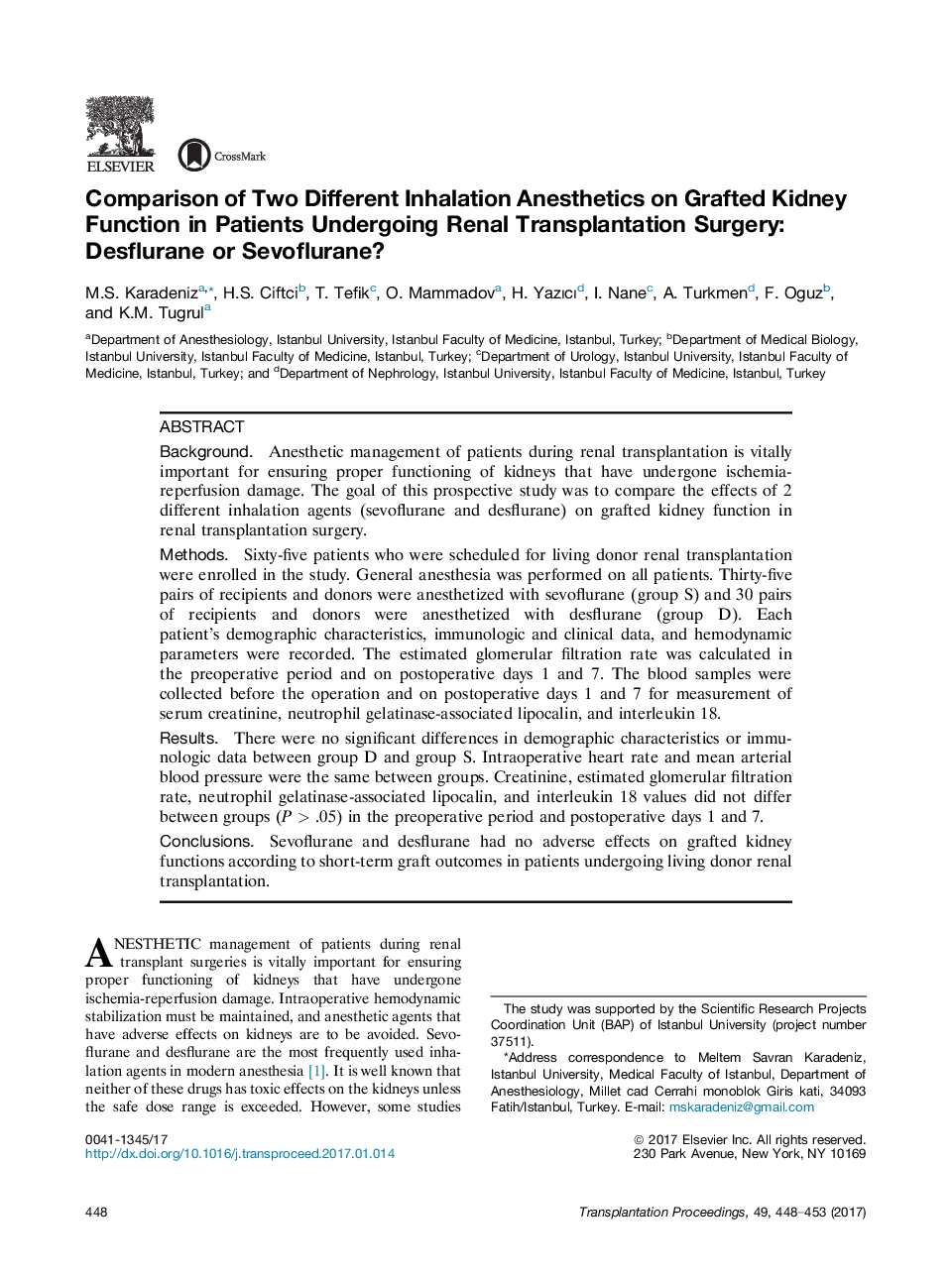| Article ID | Journal | Published Year | Pages | File Type |
|---|---|---|---|---|
| 5728853 | Transplantation Proceedings | 2017 | 6 Pages |
BackgroundAnesthetic management of patients during renal transplantation is vitally important for ensuring proper functioning of kidneys that have undergone ischemia-reperfusion damage. The goal of this prospective study was to compare the effects of 2 different inhalation agents (sevoflurane and desflurane) on grafted kidney function in renal transplantation surgery.MethodsSixty-five patients who were scheduled for living donor renal transplantation were enrolled in the study. General anesthesia was performed on all patients. Thirty-five pairs of recipients and donors were anesthetized with sevoflurane (group S) and 30 pairs of recipients and donors were anesthetized with desflurane (group D). Each patient's demographic characteristics, immunologic and clinical data, and hemodynamic parameters were recorded. The estimated glomerular filtration rate was calculated in the preoperative period and on postoperative days 1 and 7. The blood samples were collected before the operation and on postoperative days 1 and 7 for measurement of serum creatinine, neutrophil gelatinase-associated lipocalin, and interleukin 18.ResultsThere were no significant differences in demographic characteristics or immunologic data between group D and group S. Intraoperative heart rate and mean arterial blood pressure were the same between groups. Creatinine, estimated glomerular filtration rate, neutrophil gelatinase-associated lipocalin, and interleukin 18 values did not differ between groups (P > .05) in the preoperative period and postoperative days 1 and 7.ConclusionsSevoflurane and desflurane had no adverse effects on grafted kidney functions according to short-term graft outcomes in patients undergoing living donor renal transplantation.
